
Bamenda: The Heartbeat of Northwestern Cameroon
Bamenda, the capital of the Northwest Region of Cameroon, is a city that perfectly blends tradition and modernity. Nestled amidst lush hills and valleys, Bamenda offers a cool climate, which is a welcome relief from the tropical heat found in much of Cameroon. The city is renowned for its vibrant culture, with colorful markets, traditional music, and dance that provide a rich cultural experience for any visitor. Bamenda is also a gateway to some of Cameroon’s most stunning landscapes. The nearby Ring Road takes you on a scenic journey through rolling hills, waterfalls, and traditional villages, offering a glimpse into the rural life of the region. Don't miss a visit to the Menchum Falls, one of the most breathtaking natural attractions in the area. For those interested in history and culture, the city has several museums and historical sites. The Bamenda Handicraft Center is a must-visit for those looking to purchase local crafts and learn about the region's artisanal heritage. The local cuisine is another highlight, with dishes like 'achu' and 'njama njama' offering a taste of traditional Cameroonian flavors.
Local tips in Bamenda
- Visit the Bamenda Main Market early in the morning to experience the hustle and bustle at its peak.
- Hire a local guide for the Ring Road tour to get the most out of the scenic and cultural sites.
- Try local dishes like 'achu' and 'njama njama' at traditional restaurants for an authentic culinary experience.
- Dress in layers as the climate can be quite cool, especially in the mornings and evenings.
Neighbourhoods in Bamenda
Bamenda: The Heartbeat of Northwestern Cameroon
Bamenda, the capital of the Northwest Region of Cameroon, is a city that perfectly blends tradition and modernity. Nestled amidst lush hills and valleys, Bamenda offers a cool climate, which is a welcome relief from the tropical heat found in much of Cameroon. The city is renowned for its vibrant culture, with colorful markets, traditional music, and dance that provide a rich cultural experience for any visitor. Bamenda is also a gateway to some of Cameroon’s most stunning landscapes. The nearby Ring Road takes you on a scenic journey through rolling hills, waterfalls, and traditional villages, offering a glimpse into the rural life of the region. Don't miss a visit to the Menchum Falls, one of the most breathtaking natural attractions in the area. For those interested in history and culture, the city has several museums and historical sites. The Bamenda Handicraft Center is a must-visit for those looking to purchase local crafts and learn about the region's artisanal heritage. The local cuisine is another highlight, with dishes like 'achu' and 'njama njama' offering a taste of traditional Cameroonian flavors.
When is the best time to go to Bamenda?
Iconic landmarks you can’t miss
Ayos Centre
Explore Cameroonian art and culture at Ayos Centre in Foumban, a vibrant hub showcasing traditional craftsmanship and artistic expression.
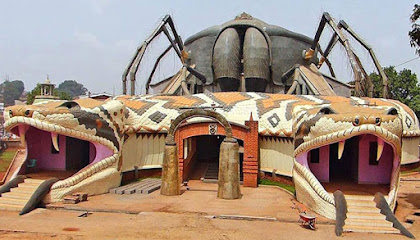
Ekom Nkam Waterfalls
Discover the breathtaking Ekom Nkam Waterfalls in Cameroon: a stunning natural wonder featured in 'Greystoke: The Legend of Tarzan'.
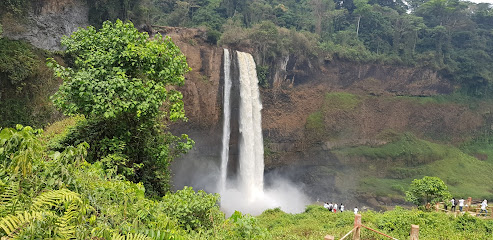
Admiralty Serviced Apartments
Experience comfort and convenience at Admiralty Serviced Apartments in Bamenda, offering modern accommodations and exceptional service for a memorable stay.
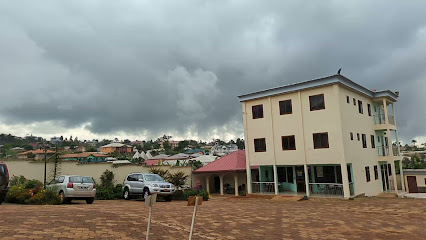
Chefferie Bandjoun
Explore the rich cultural heritage of Cameroon at Chefferie Bandjoun, a stunning landmark showcasing traditional Bamileke architecture and vibrant history.
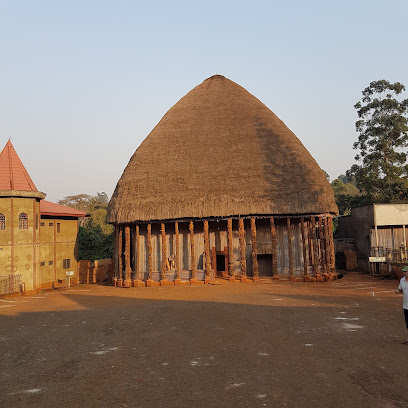
AZAM HOTEL
A comfortable and convenient hotel in Bamenda, perfect for exploring the city's attractions and enjoying a relaxing stay.

Bamenda Football Stadium
Experience the heart of Cameroonian football at Bamenda Football Stadium, a hub of local passion and community spirit.
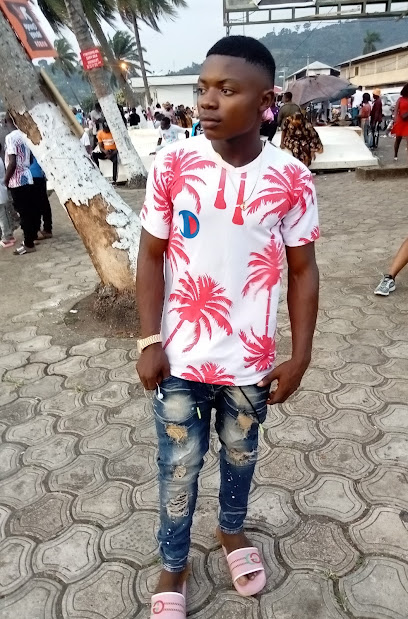
Grotte Fovu, Baham
Explore Grotte Fovu in Baham, Cameroon: a mystical site of rock formations, cultural traditions, and natural beauty. Open daily for a unique experience.
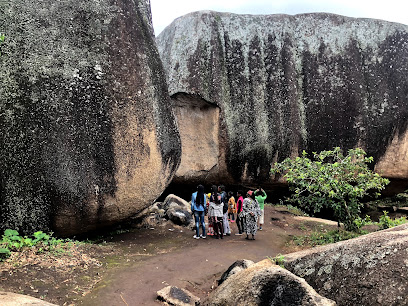
Chutes de la Métché
Discover the breathtaking Chutes de la Métché near Bafoussam, Cameroon: a place of natural beauty, cultural significance, and historical remembrance.
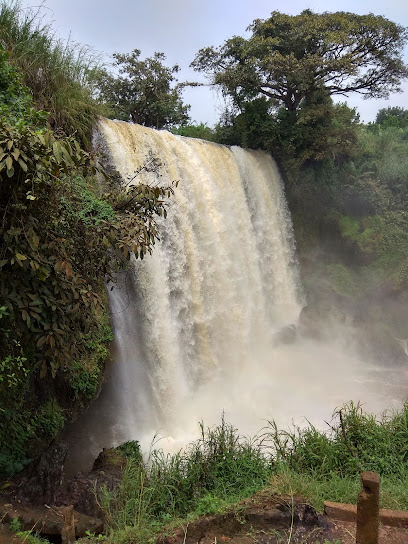
Chefferie Foto
Explore the Royal Palace of Chefferie Foto in Dschang, Cameroon, and discover centuries of Bamileke history and traditions.
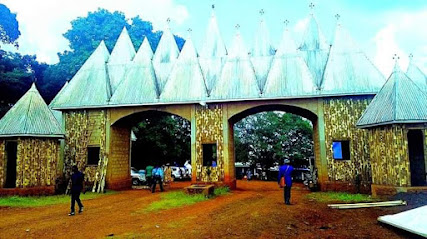
Nkwen Fon's Palace
Discover the vibrant culture and traditions of the Nkwen people at the majestic Nkwen Fon's Palace in Bamenda, Cameroon.
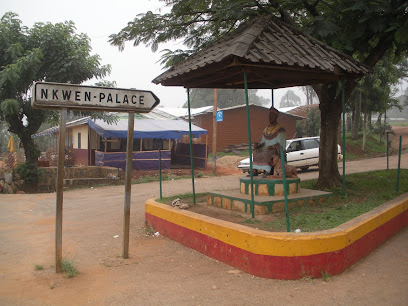
Mondial Hotel
Experience comfort and convenience at Mondial Hotel, your gateway to exploring vibrant Bamenda and the Northwest Region of Cameroon.

Mile 4 park
Discover tranquility in Bamenda at Mile 4 Park: a green escape with lush landscapes, vibrant flora, and a vibrant community atmosphere.
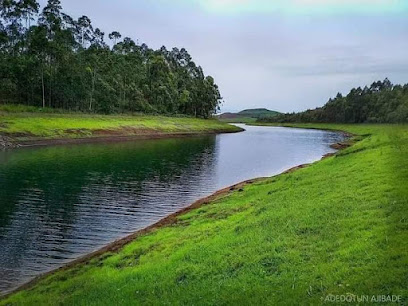
Porte D'entrée Foumban
Discover the rich cultural heritage of the Bamoun people at Foumban's iconic gateway museum, showcasing centuries of art and history.
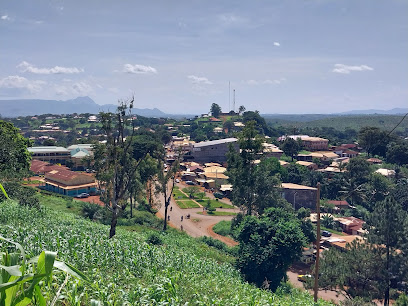
Saddle Hill Ranch and Resort
Escape to Saddle Hill Ranch and Resort in Bamenda for a tranquil retreat amidst stunning natural beauty and warm Cameroonian hospitality.

3 Corners Bambili
Discover Cameroon's cultural heritage at 3 Corners Bambili museum, a treasure trove of local history, traditions, and art in the heart of Bambili.
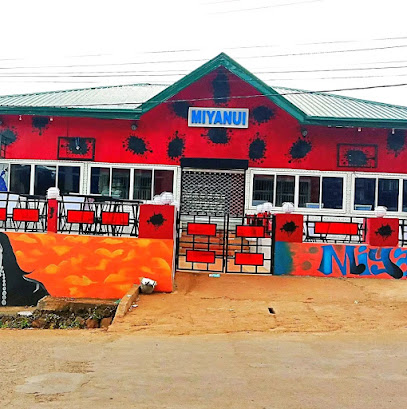
Unmissable attractions to see
Mile 4 park
Escape to Mile 4 Park in Bamenda: A tranquil green space offering relaxation, recreation, and a taste of local Cameroonian culture.
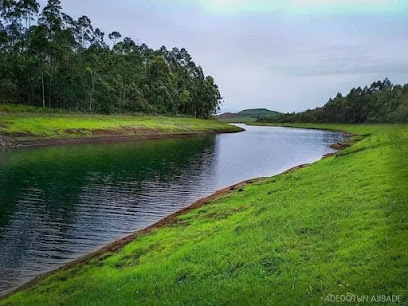
Mile 1 junction upstation
Explore the tranquil beauty of Mile 1 Junction Upstation, a perfect escape for nature lovers visiting Bamenda, Cameroon.
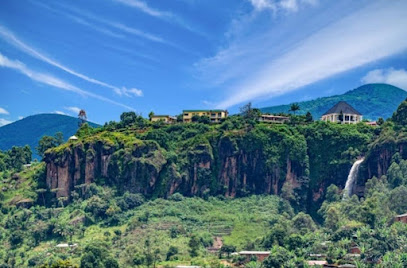
Governor junction upstation BAMENDA
Experience the vibrant local culture at Governor Junction Upstation, a must-visit tourist attraction in Bamenda, Cameroon, showcasing unique shops and eateries.
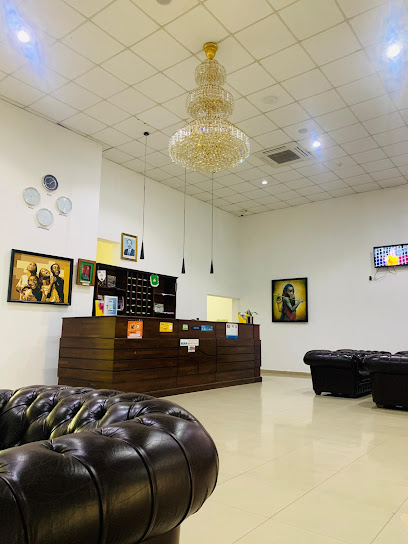
Lac Baleng
Discover Lac Baleng: A serene crater lake and sacred shrine offering natural beauty and cultural immersion near Bafoussam, Cameroon.
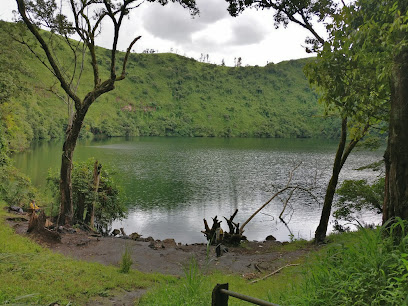
Bambui 4 corners
Discover the serene beauty of Bambui 4 Corners in Bamessing, a tranquil park perfect for relaxation, nature walks, and family picnics in Cameroon.
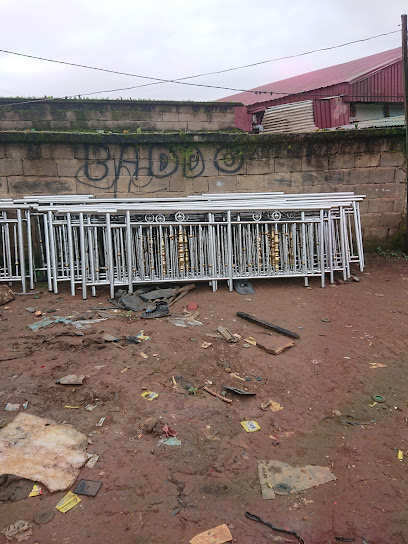
Chute de Lefog
Discover the breathtaking beauty of Chute de Lefog in Dschang, Cameroon – a serene escape into nature's tranquil cascade.
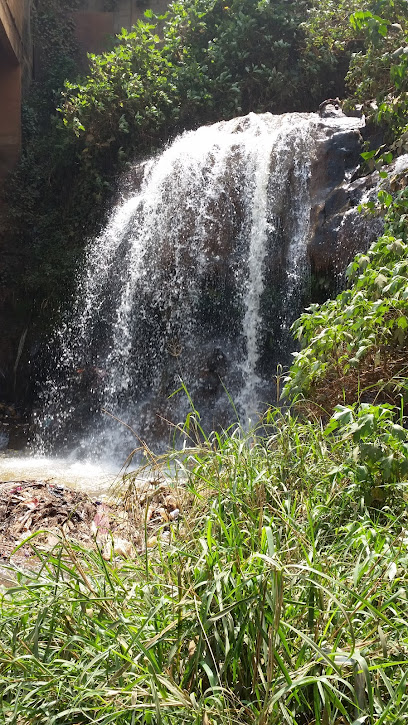
Fiangep Waterfall, Njeh
Discover the breathtaking beauty of Fiangep Waterfall in Fontem, Cameroon, a serene escape for nature lovers and adventure seekers.
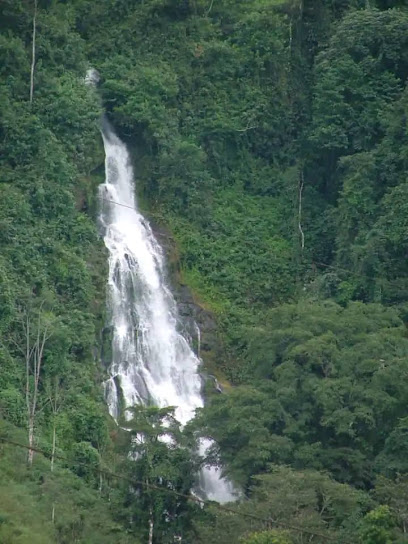
Sisia Waterfalls
Experience the enchanting beauty of Sisia Waterfalls, a natural treasure near Bamenda that offers breathtaking views and serene landscapes for all nature lovers.
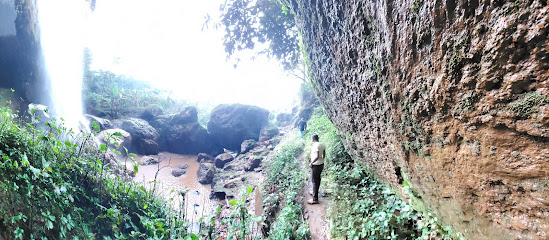
Noble Man Junction Bamenda
Experience the vibrant culture and local charm at Noble Man Junction, a must-visit tourist attraction in Bamenda, Cameroon.

Alatening Ntare Hill
Explore the serene beauty of Alatening Ntare Hill, a nature preserve offering stunning views, hiking trails, and a peaceful retreat in Cameroon.
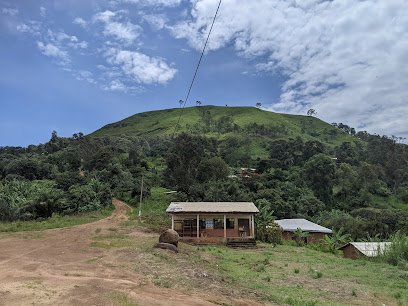
edge company
Explore Edge Company in Bamenda, a unique tourist attraction showcasing innovative craftsmanship and vibrant local culture.

Rock pillars
Explore the breathtaking rock pillars of Bambili, a stunning natural attraction in Cameroon, perfect for adventure seekers and nature lovers alike.
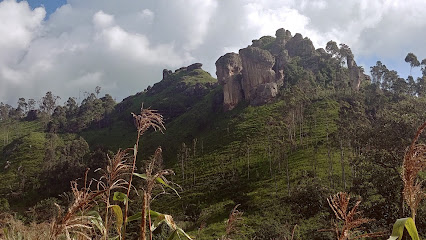
Mounba Discover
Explore Mounba Discover in Matoufa: A captivating blend of culture, nature, and community awaits you in this hidden gem.
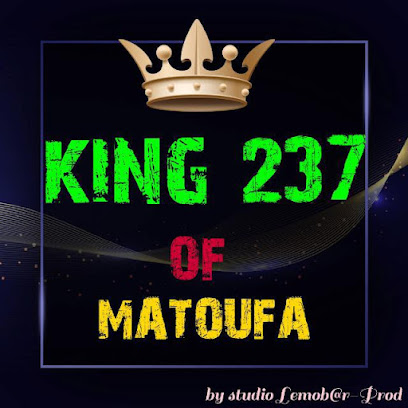
Ngoh-Phana
Discover Ngoh-Phana in Bambili: A towering rock formation offering scenic views and a connection to Cameroon's natural beauty and local heritage.

Tonepi Waterfalls, Mbouda
Discover the serene beauty of Tonepi Waterfalls near Mbouda, Cameroon, a perfect escape into nature's tranquility and lush landscapes.
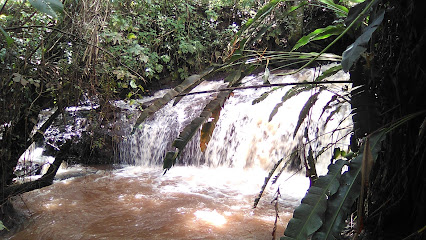
Essential places to dine
Dreamland Restaurant
Experience authentic Cameroonian cuisine at Dreamland Restaurant in Bamenda – where every meal tells a story.
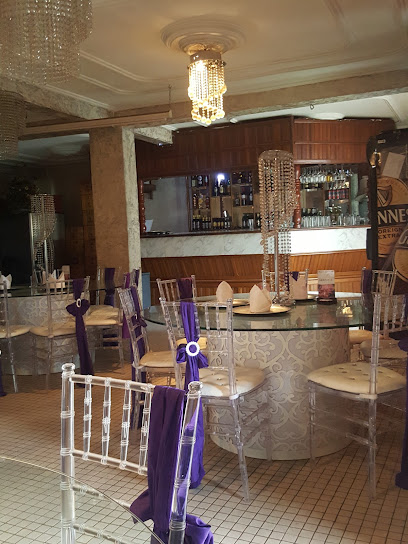
DREAMLAND SNACK BAR
Experience authentic Cameroonian flavors at Dreamland Snack Bar in Bamenda – where delicious snacks meet warm hospitality.
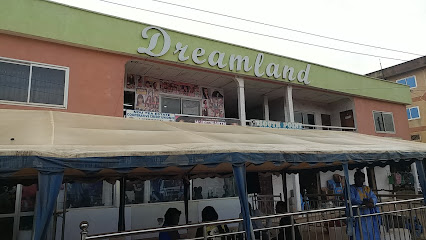
Chenjo's Grill
Experience authentic Cameroonian grilling at Chenjo's Grill in Bamenda – where taste meets tradition!
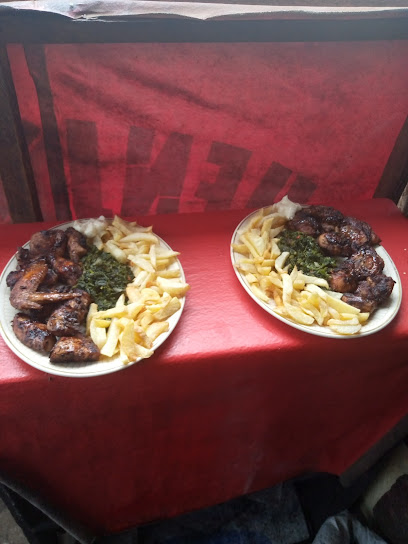
Ma Eli's Eating Spot
Discover authentic local cuisine at Ma Eli's Eating Spot in Bamenda – a must-visit for food lovers seeking true culinary experiences.
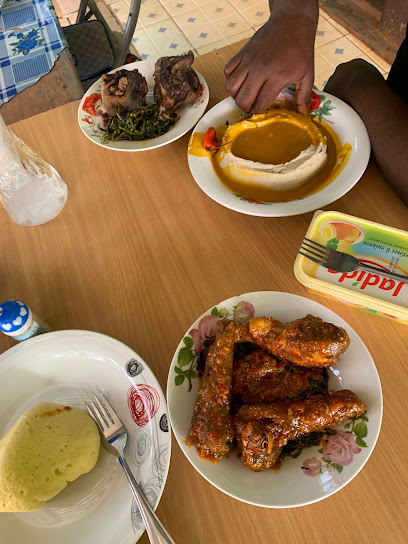
Lenny's Cuisine
Discover authentic Cameroonian cuisine at Lenny's Cuisine in Bamenda - a must-visit for food lovers seeking local flavors.
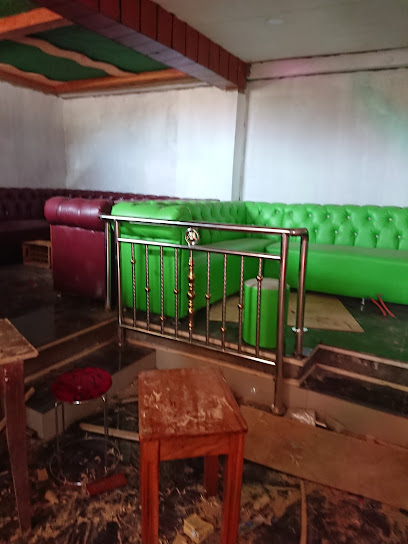
Blackrose Luxe Restaurant
Experience the finest dining at Blackrose Luxe Restaurant in Bamenda, where local flavors meet international elegance.
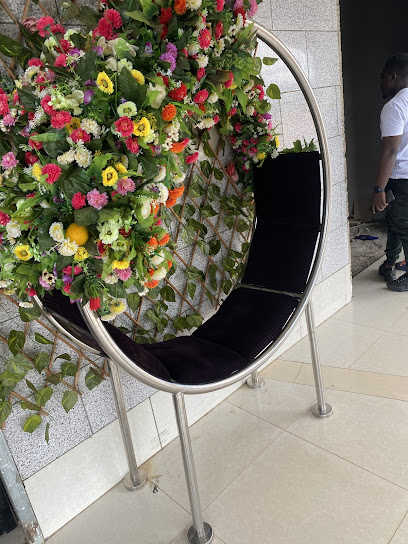
New Century Restaurant
Experience authentic Cameroonian cuisine at New Century Restaurant in Bamenda – where local flavors meet warm hospitality.

ALIZANE RESTAURANT
Experience authentic Cameroonian cuisine at Alizane Restaurant in Bamenda - where every meal tells a story.
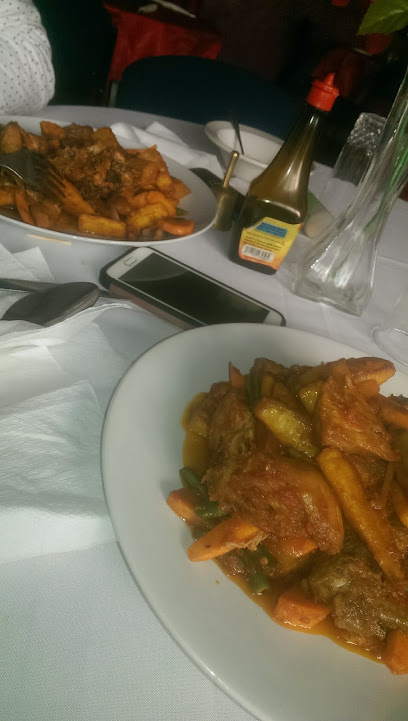
Bamenda Club 58
Experience authentic Cameroonian cuisine at Bamenda Club 58 – where vibrant flavors meet warm hospitality.
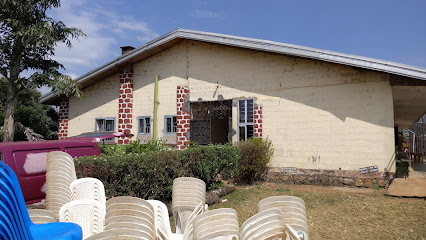
Milano Restaurant
Discover delicious flavors at Milano Restaurant in Bamenda - where local meets international cuisine in a cozy atmosphere.

Keto Restaurant
Discover the flavors of Cameroon at Keto Restaurant in Bamenda – where tradition meets modern culinary excellence.

T on T $ Grill
Experience authentic barbecue at T on T $ Grill in Bamenda – where every bite tells a story of local flavor and culinary tradition.
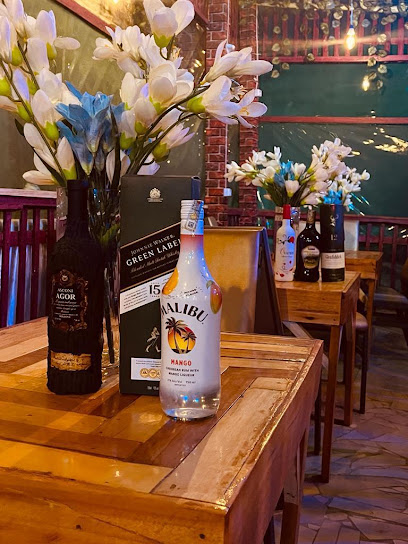
Princess Restaurant
Experience authentic Cameroonian flavors at Princess Restaurant in Bamenda – where every meal tells a story.
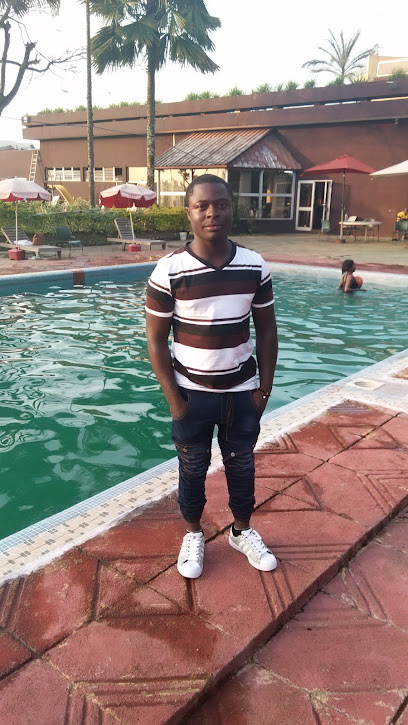
OPEN HEAVENS RESTAURANT
Experience authentic African flavors at Open Heavens Restaurant in Bamenda - where every dish tells a story.

George's Corner
Experience authentic Cameroonian cuisine at George's Corner in Bamenda – where every dish tells a story.
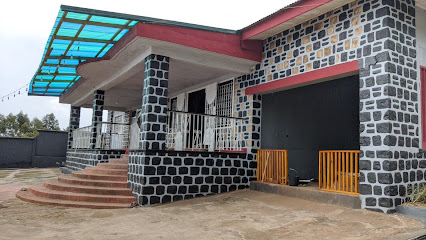
Markets, malls and hidden boutiques
NEW LIFE SUPERMARKET
Explore Bamenda's vibrant culture through shopping at New Life Supermarket, your go-to destination for local groceries and unique products.
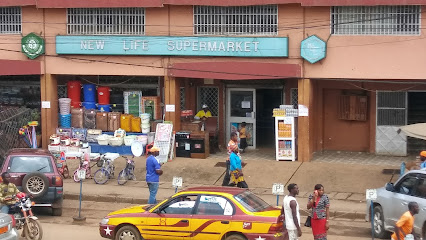
Oscar Shop Bamenda
Experience the local shopping culture at Oscar Shop Bamenda, offering a rich variety of groceries and local goods in a friendly atmosphere.
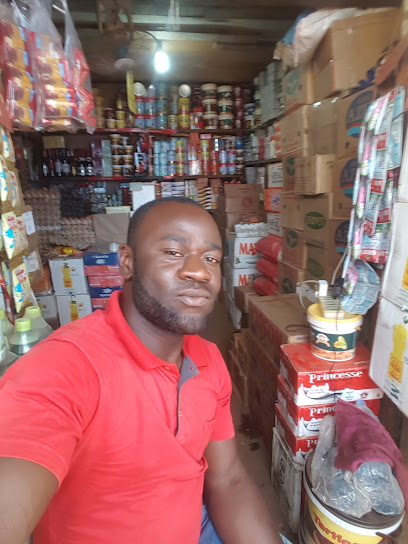
Vatican Shopping
Experience the vibrant local culture at Vatican Shopping in Bamenda, where a rich selection of groceries meets the essence of Cameroonian life.
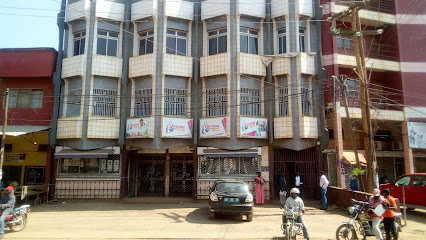
Rose Designer bamenda
Experience the essence of Bamenda fashion at Rose Designer, where affordability meets style in a vibrant shopping atmosphere.
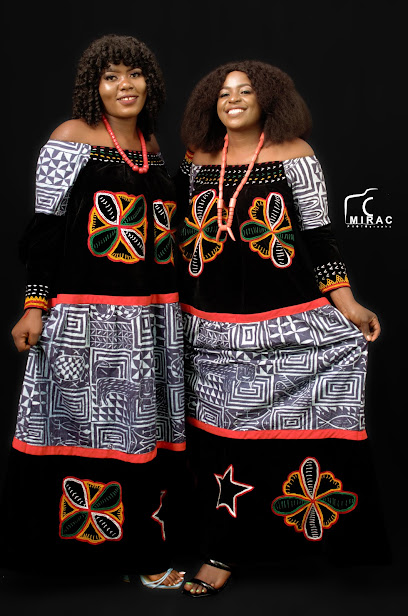
Fri's Nuts
Experience the rich flavors of Bamenda at Fri's Nuts, your premier destination for a delightful selection of local and exotic nuts.
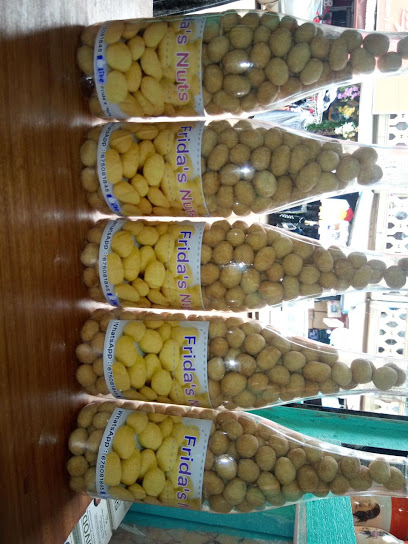
CHINISE SHOP
Explore the vibrant Chinese Shop in Bamenda for unique home goods and local crafts that reflect the rich culture of the region.

Stunners Galleria
Discover unique fashion accessories, clothing, and fragrances at Stunners Galleria in Bamenda, blending local craftsmanship with modern style.
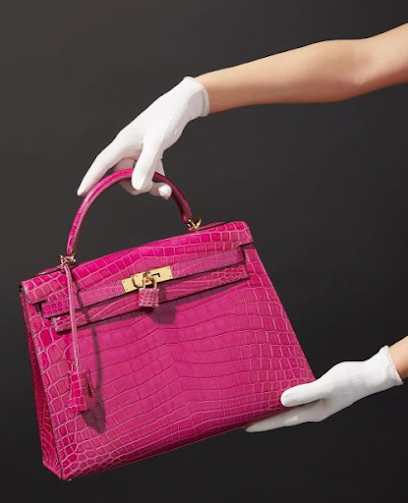
Tati D Designer Lounge
Discover unique fashion accessories at Tati D Designer Lounge in Bamenda, where style meets local craftsmanship in a vibrant shopping experience.
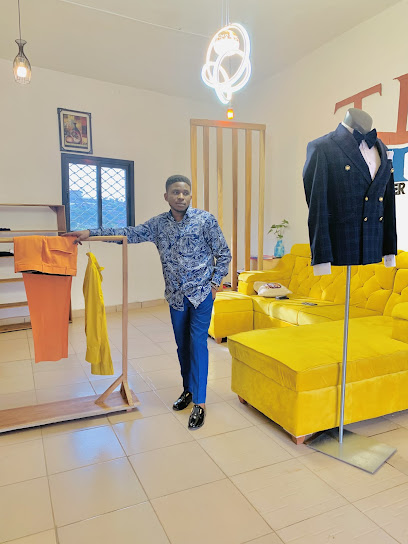
Beatrice Babies Shopping center
Discover a delightful selection of baby clothing and accessories at Beatrice Babies Shopping Center in Bamenda, where quality meets affordability.
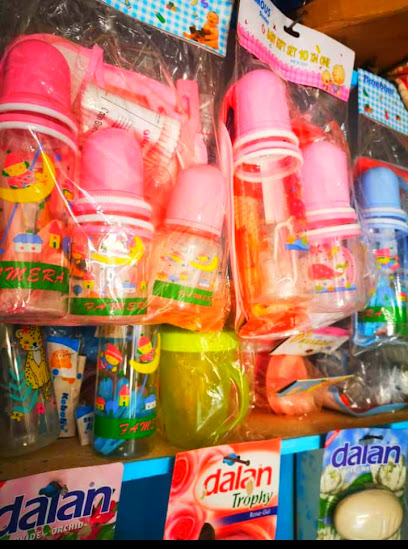
Shed 23, Main market. Bamenda
Discover local fashion and vibrant designs at Shed 23, a premier clothing store in Bamenda's bustling main market.
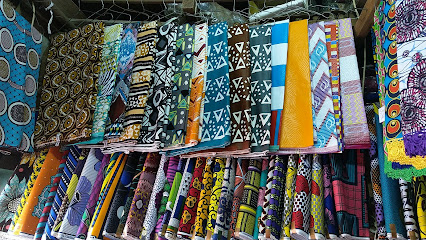
Lexz'y online shopping
Explore the vibrant Lexz'y Online Shopping mall in Bamenda, a hub for unique local products and a taste of Cameroonian culture.

Le Blanc Classic
Explore Bamenda's vibrant fashion scene at Le Blanc Classic, where local style meets modern trends in a welcoming shopping environment.
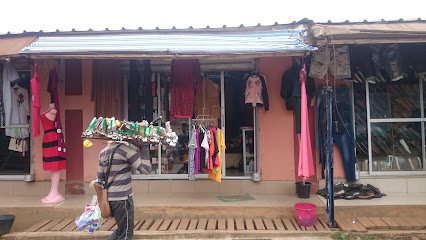
Natural Herb Oasis
Explore Natural Herb Oasis in Bamenda for a unique selection of organic health foods and herbal remedies that promote wellness and vitality.
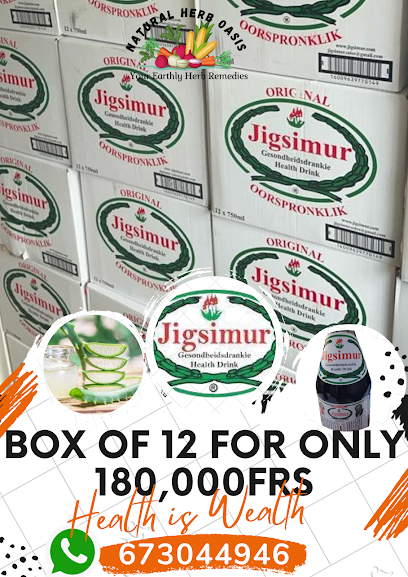
Skin Awakened
Discover Skin Awakened, Bamenda's premier health and beauty shop, offering a wide range of skincare products and wellness solutions for every traveler.

Afa medi_comestique shop Ntamulung
Explore the vibrant Afa Medi_Comestique Shop in Ntamulung, Bamenda for unique beauty and wellness products that capture the essence of local culture.
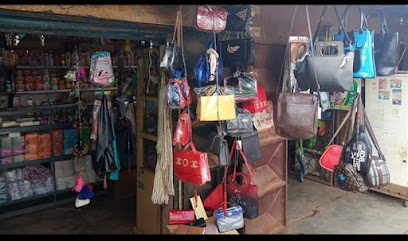
Essential bars & hidden hideouts
Awesome Quiet Bar
Discover the serene ambiance of the Awesome Quiet Bar in Bamenda, where relaxation meets local flavor in a charming setting.
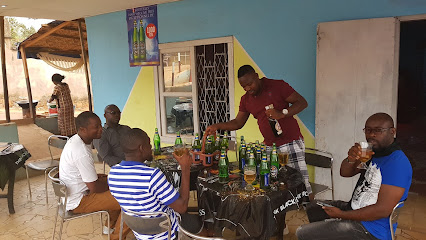
Chenjo's Grill
Discover the flavors of Bamenda at Chenjo's Grill, a top destination for grilled delights and local culinary experiences.
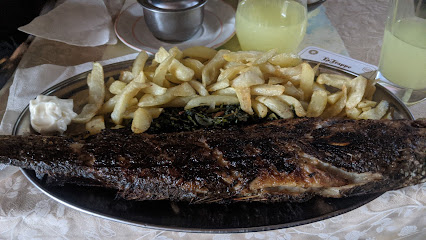
BIG G Snack BAR
Explore Bamenda's vibrant nightlife at BIG G Snack BAR, where great drinks and a relaxing atmosphere await you.
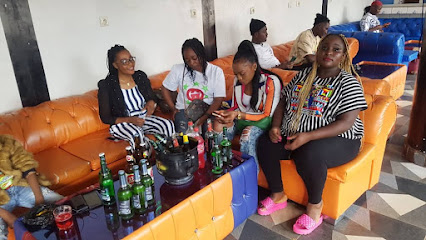
Candy Shop
Indulge in a world of sweetness at Bamenda's Candy Shop, where delightful treats and local flavors await every visitor.
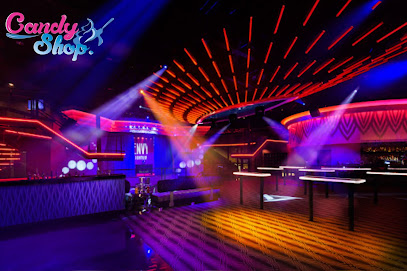
Behindche Tap
Discover the lively spirit of Bamenda at Behindche Tap, where local drinks and friendly faces create unforgettable moments.
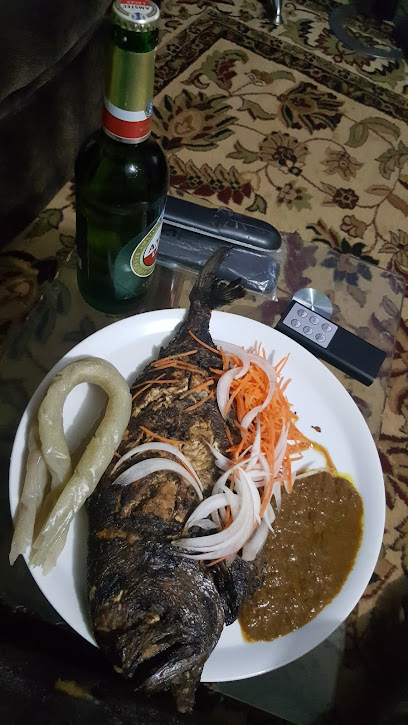
Blue Bar Jonction
Discover the lively spirit of Bamenda at Blue Bar Jonction, a cozy bar offering local drinks and a vibrant atmosphere for all visitors.
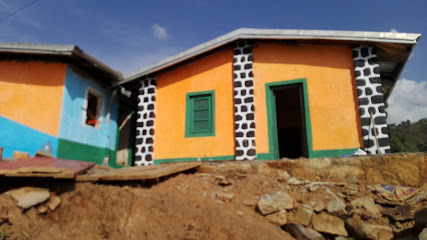
family store
Experience the vibrant atmosphere and local flavors at the Family Store in Bamenda, the perfect bar for relaxation and socializing.
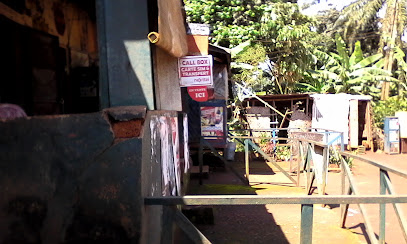
PLAZA PLUS
Experience the lively nightlife and local flavors at Plaza Plus, a must-visit bar in the heart of Bamenda that welcomes tourists with open arms.
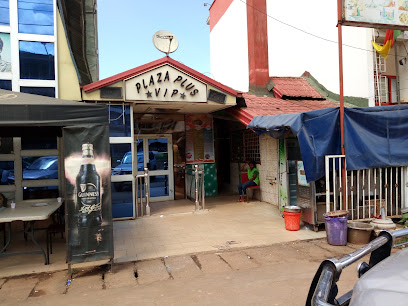
Ashanti
Discover the vibrant nightlife and local flavors at Ashanti Bar in Bamenda, a perfect spot for relaxation and socializing.
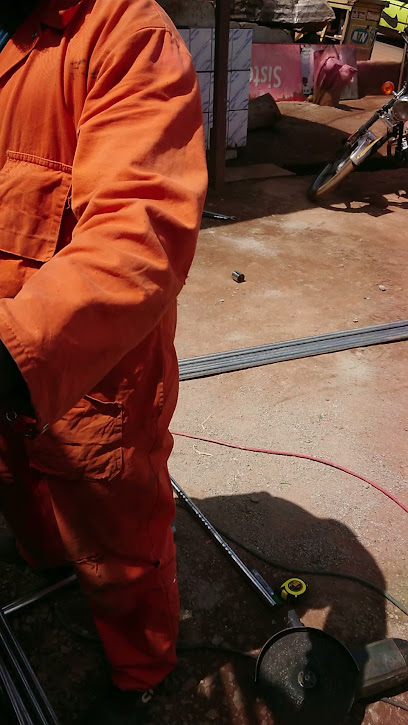
Njierforbi snack Nkwen
Discover the vibrant atmosphere and delicious local snacks at Njierforbi Snack Nkwen, a must-visit bar in Bamenda.
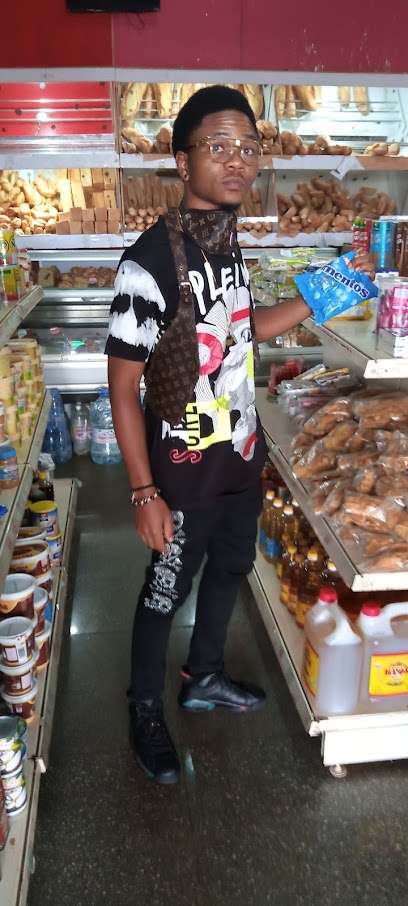
City Bistro
Discover the vibrant atmosphere and exquisite flavors at City Bistro, Bamenda’s premier lounge for locals and travelers alike.
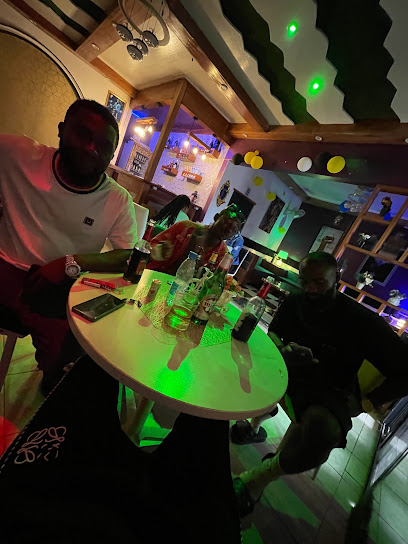
OUTBACK
Enjoy the lively atmosphere and diverse drink selection at Outback, Bamenda's favorite bar for locals and travelers alike.
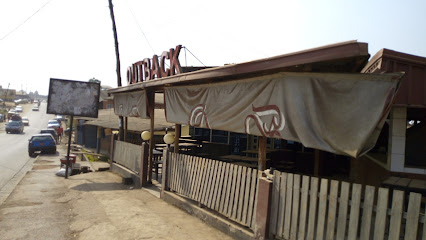
Amigos Bar And Resturant Achu
Experience the vibrant culture and delicious local cuisine at Amigos Bar and Restaurant Achu in Bamenda.
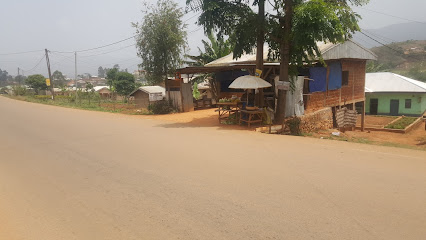
Buea-Bamenda street
Experience the vibrant local culture and friendly atmosphere at Buea-Bamenda Street, a must-visit bar in Bamenda, Cameroon.
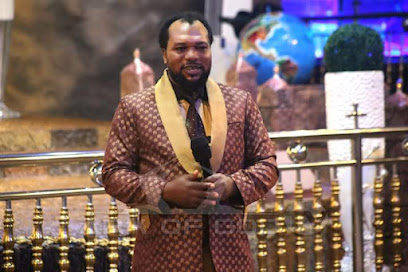
Amah's Lounge
Discover Amah's Lounge in Bamenda - a cozy bar with local flavors, vibrant music, and a welcoming atmosphere perfect for unwinding.
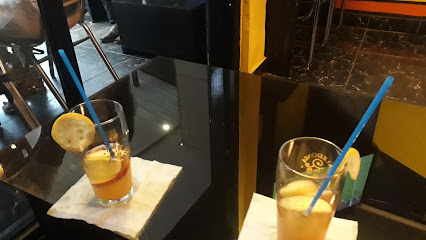
Local Phrases
-
- HelloAkam
[ah-kahm] - GoodbyeBih bih
[bee bee] - YesEya
[ay-yah] - NoAyi
[ah-yee] - Please/You're welcomeMbah
[mm-bah] - Thank youEseh
[eh-seh] - Excuse me/SorryNgwa
[ng-wah] - How are you?How di?
[how dee] - Fine. And you?Fine. Na you?
[feen. nah yoo] - Do you speak English?You sabi speak English?
[yoo sah-bee speak English] - I don't understandI no di feel
[ee no dee fehl]
- HelloAkam
-
- I'd like to see the menu, pleaseI wan see menu, mbah
[ee wahn see menu, mm-bah] - I don't eat meatI no di chop nyama
[ee no dee chohp nyah-mah] - Cheers!Chakara!
[chah-kah-rah] - I would like to pay, pleaseI wan pay, mbah
[ee wahn pay, mm-bah]
- I'd like to see the menu, pleaseI wan see menu, mbah
-
- Help!Banga!
[ban-gah] - Go away!Waka waka!
[wah-kah wah-kah] - Call the Police!Call Gendamerie!
[call jen-dah-meh-ree] - Call a doctor!Call docta!
[call dohk-tah] - I'm lostI lost
[ee lost] - I'm illI sick
[ee sick]
- Help!Banga!
-
- I'd like to buy...I wan buy...
[ee wahn buy] - I'm just lookingI di look small
[ee dee look smahl] - How much is it?Eh di cost how much?
[eh dee cost how much] - That's too expensiveEh too cost
[eh too cost] - Can you lower the price?You fit reduce price?
[yoo feet reh-deuce price]
- I'd like to buy...I wan buy...
-
- What time is it?Time yi na how?
[time yee nah how] - It's one o'clockNa one yi don pass
[nah wahn yee dohn pahs] - Half past (10)Half yi don pass ten
[hahf yee dohn pahs tehn] - MorningMoning
[moh-ning] - AfternoonAfternoon
[ahf-teh-noon] - EveningEvening
[eh-veh-ning] - YesterdayYestade
[yeh-stah-deh] - TodayToday
[toh-day] - TomorrowTomorow
[toh-moh-row] - 1Wan
[wahn] - 2Tu
[too] - 3Tri
[tree] - 4Fo
[foh] - 5Fai
[fai] - 6Sik
[sik] - 7Sev
[sehv] - 8Et
[et] - 9Nain
[nayn] - 10Ten
[tehn]
- What time is it?Time yi na how?
-
- Where's a/the...?Wey...?
[wey] - What's the address?Address yi na how?
[address yee nah how] - Can you show me (on the map)?You fit show me (for map)?
[yoo feet show me (fohr map)] - When's the next (bus)?Next (car/bush) na when?
[next (cahr/boosh) nah when] - A ticket (to ....)Ticket (for ....)
[tee-ket (fohr)]
- Where's a/the...?Wey...?
History of Bamenda
-
Before the arrival of Europeans, the area now known as Bamenda was inhabited by various ethnic groups, including the Tikar, Widekum, and Mbum people. These groups engaged in agriculture, trade, and traditional crafts, establishing a vibrant community long before external influences arrived.
-
In the late 19th century, German colonial forces arrived in the region, incorporating Bamenda into German Kamerun. The Germans established administrative and military posts, influencing local governance and infrastructure. However, their rule was met with resistance from local populations.
-
Following Germany's defeat in World War I, Bamenda came under British control as part of the League of Nations mandate. The British administration further developed local infrastructure, including roads and schools, while also introducing new agricultural practices. This period saw significant cultural and social changes in the region.
-
Bamenda played a crucial role in the push for independence from colonial rule. In 1961, the region became part of the newly independent Republic of Cameroon. This period was marked by political activism and efforts to unify the English-speaking regions with the rest of the country, leading to the formation of the Federal Republic of Cameroon.
-
In the decades following independence, Bamenda emerged as a key economic and cultural hub in Cameroon. The city became known for its vibrant markets, educational institutions, and cultural festivals. The Bamenda Ring Road, a major highway, helped facilitate trade and travel, further enhancing the city's regional importance.
-
In recent years, Bamenda has faced political and social challenges, including tensions related to linguistic and regional identities. Despite these issues, the city remains a resilient and dynamic community, with ongoing efforts to promote peace, development, and cultural preservation.
Bamenda Essentials
-
Bamenda is located in the Northwest Region of Cameroon. The nearest international airport is Douala International Airport, approximately 300 kilometers away. From Douala, you can take a domestic flight to Bamenda Airport, which is the most convenient option. Alternatively, you can travel by road, which takes around 6 to 7 hours by bus or car. Private car rentals and taxi services are available, though it is advisable to book through reputable companies for safety and comfort.
-
Bamenda has a range of transportation options for getting around the city and its surroundings. Taxis are the most common form of transportation and are relatively inexpensive. Motorbike taxis, known locally as 'benskins', are also widely used but can be less safe. Public minibuses, or 'clandos', operate on fixed routes and are a budget-friendly option. Car rentals are available for those who prefer to explore the area at their own pace, but driving in Bamenda can be challenging due to road conditions and traffic.
-
The official currency in Cameroon is the Central African CFA Franc (XAF). Credit cards are accepted in some hotels, restaurants, and larger stores, but it is advisable to carry cash for smaller establishments and markets. ATMs are available in Bamenda, but it is wise to withdraw sufficient cash in larger cities like Douala or Yaoundé before traveling. Currency exchange services are also available, but ensure you use authorized exchange bureaus.
-
While Bamenda is generally safe for tourists, it is important to stay vigilant. Certain areas, such as neighborhoods around Nkwen and Ntamulung, have reported higher crime rates, particularly targeting tourists. Avoid walking alone at night and keep your belongings secure. It is advisable to use registered taxis and avoid public transportation after dark. Always be cautious of your surroundings and avoid displaying valuables openly.
-
In case of emergency, dial 117 for the police, 118 for fire services, and 119 for medical emergencies. Bamenda Regional Hospital provides medical services, but for serious conditions, you may need to travel to larger cities. It is recommended to have travel insurance that covers medical emergencies and evacuation. Familiarize yourself with the location of the nearest embassy or consulate for additional support.
-
Fashion: Do dress modestly, especially in rural areas. Avoid wearing revealing clothing. Religion: Do respect local customs and traditions. When visiting religious sites, dress conservatively and remove your shoes if required. Public Transport: Do be respectful and courteous to drivers and other passengers. Don't argue with drivers over fares; negotiate beforehand if necessary. Greetings: Do greet people with a handshake and a smile. It is customary to ask about someone's health and family. Eating & Drinking: Do try local dishes and accept food offerings graciously. Don't refuse hospitality, as it is considered impolite. Avoid eating or drinking in public during Ramadan if you are visiting during this time.
-
To experience Bamenda like a local, visit the vibrant Bamenda Main Market where you can buy fresh produce, crafts, and textiles. Engage with locals, as they are often friendly and willing to share stories about the city's history and culture. Don't miss visiting the Fon's Palace in Bafut, a short drive from Bamenda, to learn about local traditions and heritage. For a unique experience, attend a traditional dance or cultural festival to immerse yourself in the local culture.
Trending Landmark in Bamenda
Nearby Cities to Bamenda
-
Things To Do in Mbouda
-
Things To Do in Dschang
-
Things To Do in Bafoussam
-
Things To Do in Foumban
-
Things To Do in Mamfe
-
Things To Do in Nkongsamba
-
Things To Do in Bafia
-
Things To Do in Douala
-
Things To Do in Buea
-
Things To Do in Tiko
-
Things To Do in Calabar
-
Things To Do in Limbe
-
Things To Do in Edea
-
Things To Do in Uyo
-
Things To Do in Yaoundé










